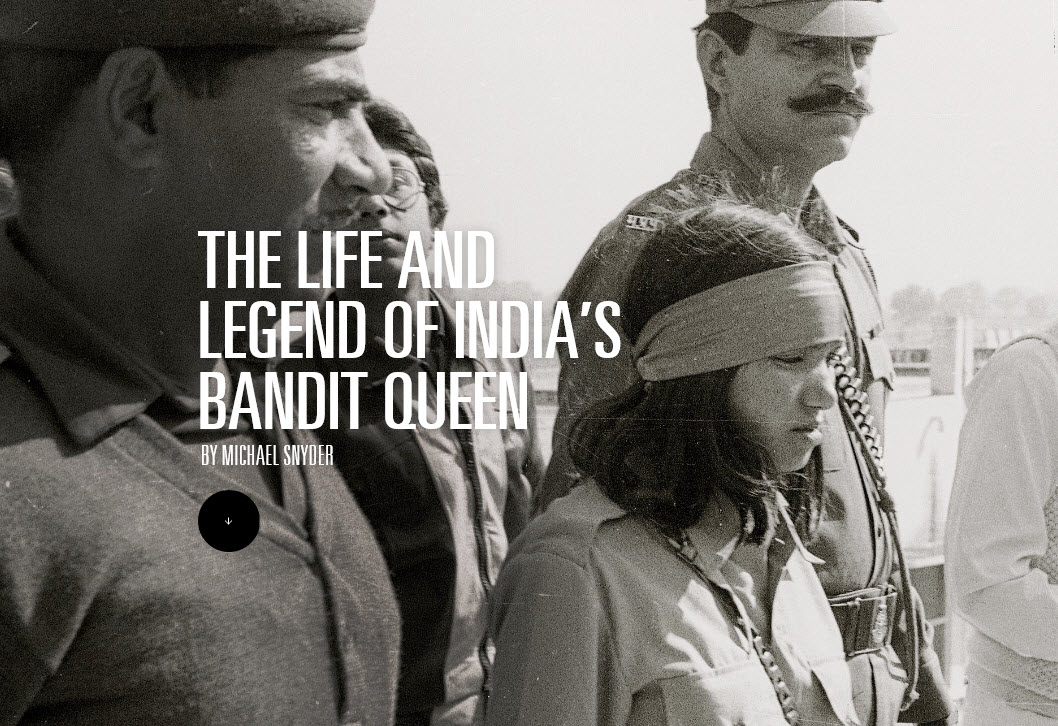On a chill February day in 1983, a 20-year-old young woman known as Phoolan Devi—literally, Flower Goddess—walked out of the forested ravines of the Chambal River valley and handed over her gun. She bowed to images of Gandhi and the goddess Durga and surrendered herself to the Chief Minister and Chief of Police of Madhya Pradesh state in central India. The cheering crowd of 8,000 people gathered that day—journalists; politicians; some 300 cops; and others from across the dry, impoverished center of the world’s largest democracy—knew Phoolan Devi as a hero, a bandit, a murderess, and a goddess long before they saw her in the flesh. Phoolan Devi, India’s celebrated Bandit Queen, was not a woman, but a legend.
Born to a low-caste household in 1963 in a village on the banks of the sacred Yamuna River in the vast north Indian state of Uttar Pradesh, Phoolan Devi was, by the time of her surrender, wanted on 22 counts of murder and another 26 counts of kidnapping and looting. At 31, after a decade in prison, she became the subject of a major Bollywood film, Bandit Queen, which she criticized and which, as Arundhati Roy pointed out in a two-part evisceration called The Great Indian Rape Trick, calcified a problematic version of her life (and its meaning) into accepted fact. Four years after that, she was elected to her first term in India’s parliament, the first low-caste woman to hold that distinction. In 2001, at the age of 37, while serving her second term, she was shot dead in front of her home in Delhi for still-unknown reasons.
